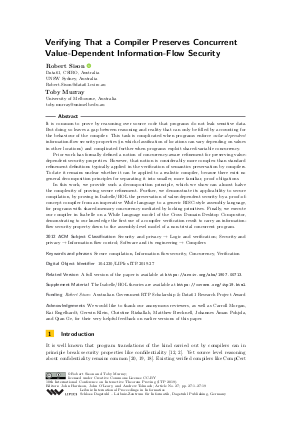LIPIcs.ITP.2019.27.pdf
- Filesize: 0.61 MB
- 19 pages

 Creative Commons Attribution 3.0 Unported license
Creative Commons Attribution 3.0 Unported license



















Feedback for Dagstuhl Publishing